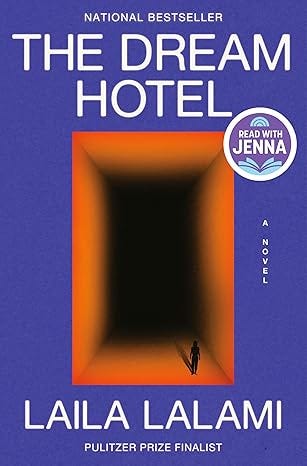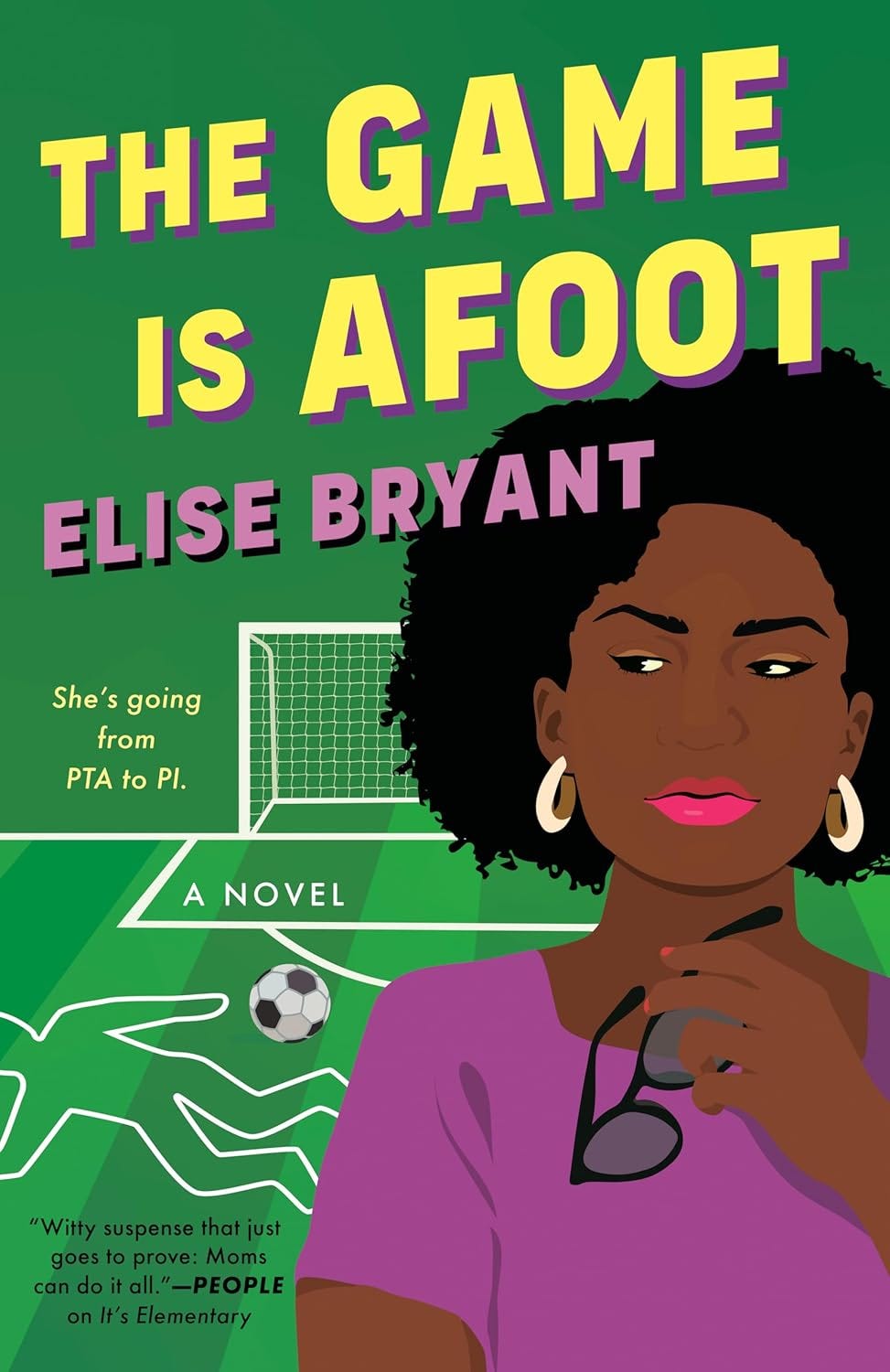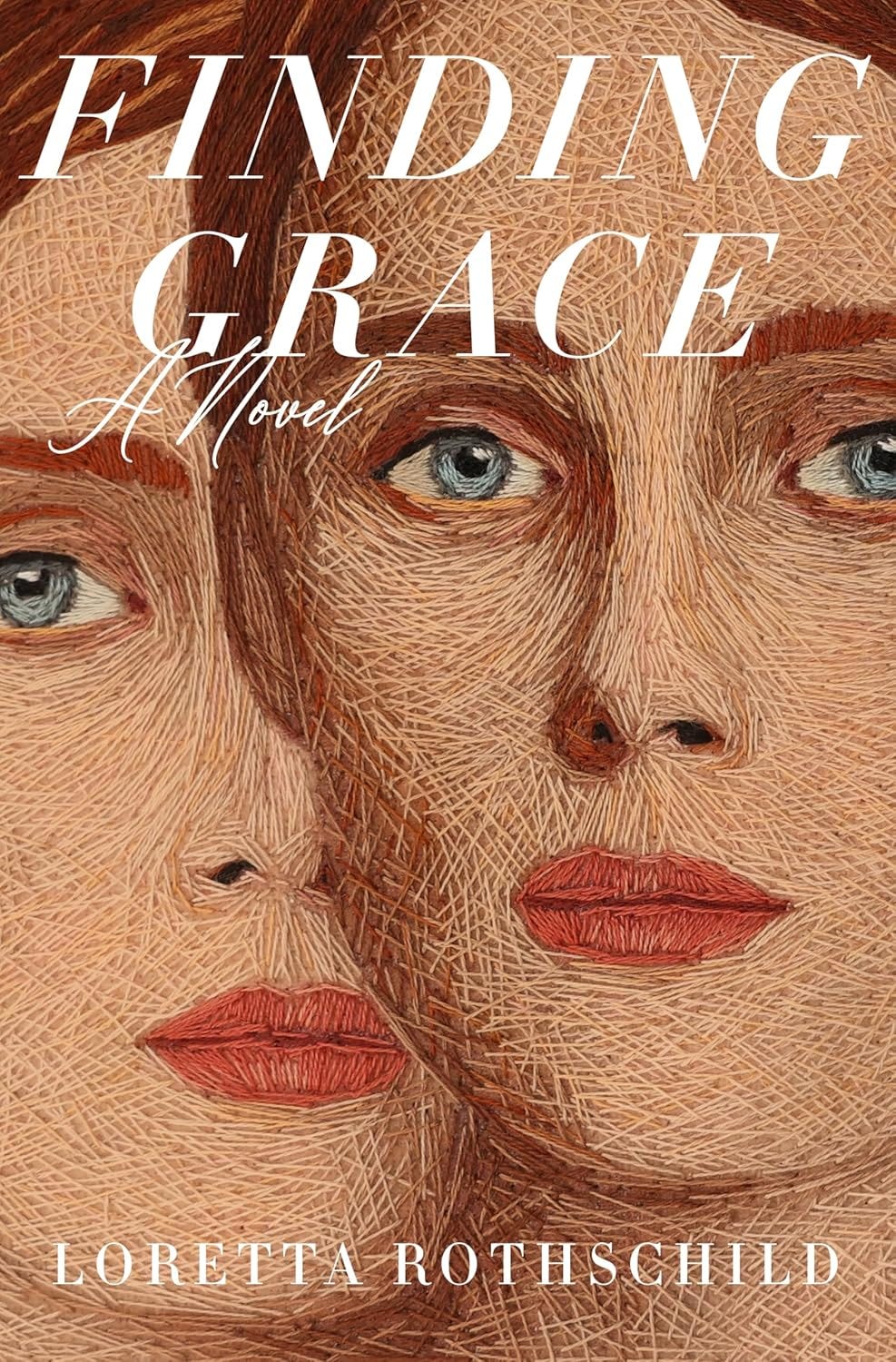A family is on their way to a lacrosse game, and the teenager is driving the mini-van when it veers off course, colliding with another vehicle and killing two people.
That event—which is revealed in the book’s description—and its aftermath comprise the plot of Culpability, Oprah’s latest pick, by Bruce Holsinger. On the surface, the novel sounds like a family drama that falls under the umbrella of women’s fiction, but as we read on, we discover that the mini-van had a hands-free navigation system, and that the mother of the teenager is an AI expert.
As Ron Charles from the Washington Post says, “Throughout all this family drama, Holsinger ventures deep into the issue of “distributed culpability,” the complicated moral calculus that tries to account for the actions of the machines we program… If you want an engaging novel sure to spark great discussion about that thorny future, this is it.”
In other words, Culpability is catnip for book clubs, which means it’s a great example of upmarket fiction.
Since genre trends come and go, one of the best ways to break into publishing is to write either high concept or upmarket fiction. I’ve already discussed high concept fiction so this week we’ll tackle upmarket/book club fiction.
Publishers love upmarket novels because there’s always a chance that one of the big book clubs like Reese or Jenna will feature them, and they are also more likely to get reviewed. It’s also a fan favorite of women who are over 40, one of the biggest demographic of book buyers. But what are the elements that go into crafting an upmarket manuscript?
Upmarket Novels Are Often Of-the-Moment
Not all upmarket novels are timely but capturing a current mood on the page increases a novel’s chance for popularity. For instance, a story about competing novelists might amuse, but when one “basic white” novelist decides to steal a story from a dead Asian writer, and pass herself off as Asian, zeitgeist alarms begin to blare.
R.F. Kuang, the author of Yellowface, isn’t content to deal with just one timely issue like cultural appropriation. As author Tracey Lien says, "Yellowface is a spicy, satirical page-turner that skewers the racism and tokenization in the publishing and entertainment industries, the vanity of social media, and the lengths at which people will go to remain in the glaring spotlight."
Another ripped-from-the-headlines novel is The Dream Hotel by Laila Lalami. It’s about a woman who is detained at the airport by an official who says that her government-monitored dreams indicate she is in danger of harming her husband. She is sent to a detention center where she attempts to prove her innocence.
Francine Prose, writing for the Washington Post, says, “ “If you’re concerned…about surveillance, data-mining, mass incarceration, a misogynistic autocracy run by rogue technocrats…The Dream Hotel is your book.”
Upmarket Often Borrows From Genre
One of my favorite novels from last year was God of the Woods by Liz Moore. It begins with the line, “The bed is empty.” That bed is located in a storied sleepaway camp, and it belongs to Barbara, the daughter of the affluent owner, the Van Laars. She ends up being the second child in the family to mysteriously disappear.
Through the use of multiple points-of-view, Moore shows us the upstairs/downstairs aspects of a summer camp, the townies attitudes toward the Van Laars, and the twisted dynamics of a family that’s already lost one child. All of this is fascinating, but we are also dying to know, “What happened to the children?”
Sometimes upmarket fiction borrows from more than one genre. Kaliane Bradley, the author of The Ministry of Time pinched from several: time travel, romance, spy thriller, sci-fi, and workplace satire. It’s about a British civil servant who helps help time-traveling “expats” to adjust to life in 21st-century London and who falls in love with one of them, an arctic explorer from 1894.
The novel also takes on weighty topics like government corruption, the refugee crisis, and climate change, but much of the enjoyment comes from witnessing the explorer trying to adjust to a new world with conveniences like washing machines and Spotify.
Upmarket Novels Are Character Driven
The Wedding People by Alison Espach is light on plot and often episodic, but millions of readers identified with Phoebe, a suicidal academic, who gets caught up in the wedding of a Bridezilla.
In upmarket novels, plot is secondary to characters, and the character arc plays a crucial role. When pitching, you would almost certainly prominently feature the character change. Publishers Marketplace pitch for TheWedding People says it’s about “a woman at the lowest moment of her life who checks into a glamorous hotel in Rhode Island, only to find herself swept into a stranger's wedding and forever changed by her entanglement in their family dysfunction.”
One of my all-time favorite novels, Eleanor Oliphant is Completely Fine by Gail Honeyman, features a main character who undergoes tremendous character change but who also has an incredibly engaging first-person voice.
The Publishers Marketplace pitch for Eleanor Oliphant is Completely Fine highlights the character change as well as the voice: It’s about “a loveable oddball whose social misunderstandings, mental health issues and unabashed wit make for an irresistible journey as she realizes that the only way to survive in the real world is to open her heart to friendship.”
Universal Themes
One of the things that gives a novel pre-pub buzz is plentiful international sales, and novels that have universal themes play well in other countries.
Good vs. Evil is a universal theme, and Morgan Ryan's A Resistance of Witches, which highlights that theme, sold in five different countries. It’s about witches racing against a ticking clock and across Europe to find an ancient book with malevolent power before it falls into Nazi hands and gives them everything they need to destroy the world.
Survival resonates with every culture and both The Martian by Andrew Weil and Where the Crawdads Sing by Delilah Owens tapped into that universal theme.
No one wants to be oppressed so novels that feature characters with curtailed freedoms strike a chord. Novels with oppressed characters include The Help by Kathyrn Stockett and The School for Good Mothers by Jessamine Chan, which is about government control over parenting.
Other universal themes include justice, self-discovery, mortality, corruption, and a search for life’s meaning or one’s identity.
Upmarket Novels Aren’t Necessarily High Concept
Reese’s latest pick, Spectacular Things by Beck Dorey-Stein, deals with family secrets among sisters. A recent Jenna Pick, The Life Cycle of the Common Octopus by Emma Knight is about female friendships and motherhood. While both are engaging tales, neither could be called high-concept.
It should be noted that both of the authors brought notable bios to their book deals. Upmarket novels centering around friends and families without a hooky pitch or a connected author can be an extremely tough sell in this climate.
Bottom line, the more of the above elements your upmarket manuscript has, the easier it is to sell.
Further Reading: When Upmarket Fiction Doesn’t Work
Questions? Comments? Love to hear from you.
THIS WEEK IN PITCHING
Where I comment on the Publishers Marketplace pitches for this week’s deals.
Bora Chung's THE PAIN CHASERS, a speculative thriller set in a world where pain has been eradicated by Big Pharma and a cult that believes suffering gives life meaning rises up against it.
Normally, pitches feature the main character, her desire, and obstacles but this is one of those occasional instances where the concept is the best way to the pitch the story.
Liz Kerin's HOW TO DISAPPEAR COMPLETELY, about a young woman who is thrust into a deadly conspiracy that may hold the key to her sister's disappearance when a darkly charismatic podcast host introduces her to a group of people who had the same paranormal encounter as her sister.
This is what I call a hide-the-ball pitch because we don’t know what the paranormal encounter is. That’s fine for a deal listing, but if you have a pitch with a fun and unexpected twist, don’t be coy with agents. Spell it out in your query letter.
THIS WEEK IN BOOK MARKETING
Where I look at newly released books with great pitches in either the cover, title, tagline, description or something else.
When Your Cover is a Comp
The Game is Afoot by Elise Bryant
Remind you of an actress in a popular mini-series? I’m assuming it’s deliberate; if so, it’s a smart tactic.
Best concept:
Frozen People
Ali Dawson and her cold case team investigate crimes so old, they're frozen—or so their inside joke goes. Nobody knows that her team has a secret: they can travel back in time to look for evidence.
Tagline: Some murders can’t be solved in just one lifetime
Best Title:
The World's Greatest Detective and Her Just Okay Assistant
This hard wroking title reveals genre and tone and also arouses curiosity.
Best First Chapter
Loretta Rothschild's FINDING GRACE’s first chapter packs the biggest punch I’ve seen in a long time. It’s so compelling that the publisher is running Facebook ads with a link to it.
NEWS YOU CAN USE
An excellent summary of the different kinds of edits from
.Media guide for authors from
Most anticipated sci-fi, fantasy and horror novels.
Best novels of 2025 so far.
Hot publishing topics of the week: Does the novel matter any more? (Yes!) Is there only one author making real money anymore? (A deceptive title) He said/she said literary works. (What’s the real dish?) Another memoir scandal.
Next week I’m booked for services, and I have limited openings for the following week, but August is still pretty much open.









I'm a huge fan of The Wedding People and I like how you highlight the way in which the protagonist grows throughout the story as the real hook. We love transformations, don't we? This is so helpful!
--karin, you are so generous with all you know, and you present it incredibly well. thanks for this.